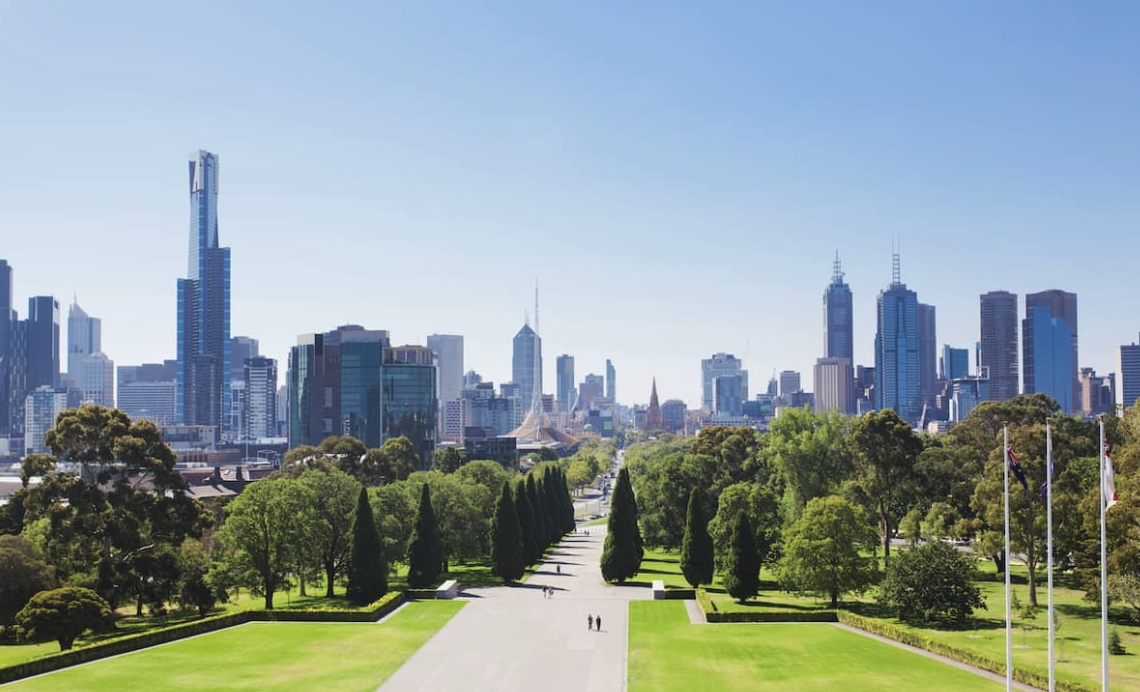Drop in inflation announced just a day after interest rates stay on hold
Decreasing automotive fuel and energy prices have been major contributors to a falling inflation rate, but the RBA is advising caution
The rate of inflation has fallen to its lowest levels since August 2021, the Australian Bureau of Statistics revealed today. The news comes just a day after the Reserve Bank of Australia announced it would be keeping interest rates on hold at 4.35 percent.
The drop in the rate of inflation to 2.7 percent has been largely attributed to moderating prices of petrol and diesel, with automotive fuel 7.6 percent lower than a year ago, and electricity, which fell 17.9 percent over the same period.
Michelle Marquardt, head of Prices Statistics at Australian Bureau of Statistics, said the decrease in electricity prices was largely due to Commonwealth and State Government energy rebates in Queensland, Western Australia and Tasmania.
“Electricity fell 17.9 percent in the 12 months to August, which is the largest annual fall since the electricity series started in the early 1980s,” Ms Marquardt said. “Commonwealth Government and State Government rebates led to a 14.6 percent fall in electricity prices in the month of August, which followed a 6.4 percent fall in July.
“Excluding the rebates, electricity prices would have risen 0.1 percent in August and 0.9 per cent in July.”
The news was less positive for renters and those seeking to build or renovate, with rents up 6.8 percent over the past year and new dwelling prices also up by 5.1 percent.
Following a meeting of the RBA board yesterday, governor Michele Bullock announced that the cash rate would remain unchanged, citing persistently high inflation and economic uncertainties as major influences on the decision.
“Inflation has fallen substantially since the peak in 2022, as higher interest rates have been working to bring aggregate demand and supply closer towards balance,” Ms Bullock said in a statement. “But inflation is still some way above the midpoint of the 2–3 per cent target range.
“Headline inflation is expected to fall further temporarily, as a result of federal and state cost of living relief. However, our current forecasts do not see inflation returning sustainably to target until 2026. In year-ended terms, underlying inflation has been above the midpoint of the target for 11 consecutive quarters and has fallen very little over the past year.”
While the decision to keep rates on hold was widely anticipated, it has raised eyebrows in some quarters given the US Federal Reserve announced last week it was dropping the official cash rate by 50 basis points. However, research director at CoreLogic Asia Pacific, Tim Lawless, says there was good reason for keeping rates on hold in Australia for now.
“Importantly, Australia hasn’t gone ‘as hard’ on monetary policy as most other Western nations, increasing the cash rate by 425 basis points compared with a 525 basis point increase in the US and NZ, and a 515 basis point rise in the UK,” he said.
“Also, our tightening cycle has lagged most other nations, with the cash rate increasing from May 2022 compared with the US where the hiking cycle commenced in March 2022 or the UK where interest rates started rising in December 2021, or NZ and the EU which commenced rate hikes even earlier, in October and July 2021 respectively.”
Ms Bullock said the RBA board would be keeping a close on labour markets both here and overseas as it navigates a path to sustained lower inflation at the target rate of between 2 and 3 percent.
“Sustainably returning inflation to target within a reasonable timeframe remains the board’s highest priority,” she said. “This is consistent with the RBA’s mandate for price stability and full employment. To date, longer term inflation expectations have been consistent with the inflation target and it is important that this remain the case.
“While headline inflation will decline for a time, underlying inflation is more indicative of inflation momentum, and it remains too high.”
A divide has opened in the tech job market between those with artificial-intelligence skills and everyone else.
A 30-metre masterpiece unveiled in Monaco brings Lamborghini’s supercar drama to the high seas, powered by 7,600 horsepower and unmistakable Italian design.
A divide has opened in the tech job market between those with artificial-intelligence skills and everyone else.
There has rarely, if ever, been so much tech talent available in the job market. Yet many tech companies say good help is hard to find.
What gives?
U.S. colleges more than doubled the number of computer-science degrees awarded from 2013 to 2022, according to federal data. Then came round after round of layoffs at Google, Meta, Amazon, and others.
The Bureau of Labor Statistics predicts businesses will employ 6% fewer computer programmers in 2034 than they did last year.
All of this should, in theory, mean there is an ample supply of eager, capable engineers ready for hire.
But in their feverish pursuit of artificial-intelligence supremacy, employers say there aren’t enough people with the most in-demand skills. The few perceived as AI savants can command multimillion-dollar pay packages. On a second tier of AI savvy, workers can rake in close to $1 million a year .
Landing a job is tough for most everyone else.
Frustrated job seekers contend businesses could expand the AI talent pipeline with a little imagination. The argument is companies should accept that relatively few people have AI-specific experience because the technology is so new. They ought to focus on identifying candidates with transferable skills and let those people learn on the job.
Often, though, companies seem to hold out for dream candidates with deep backgrounds in machine learning. Many AI-related roles go unfilled for weeks or months—or get taken off job boards only to be reposted soon after.
Playing a different game
It is difficult to define what makes an AI all-star, but I’m sorry to report that it’s probably not whatever you’re doing.
Maybe you’re learning how to work more efficiently with the aid of ChatGPT and its robotic brethren. Perhaps you’re taking one of those innumerable AI certificate courses.
You might as well be playing pickup basketball at your local YMCA in hopes of being signed by the Los Angeles Lakers. The AI minds that companies truly covet are almost as rare as professional athletes.
“We’re talking about hundreds of people in the world, at the most,” says Cristóbal Valenzuela, chief executive of Runway, which makes AI image and video tools.
He describes it like this: Picture an AI model as a machine with 1,000 dials. The goal is to train the machine to detect patterns and predict outcomes. To do this, you have to feed it reams of data and know which dials to adjust—and by how much.
The universe of people with the right touch is confined to those with uncanny intuition, genius-level smarts or the foresight (possibly luck) to go into AI many years ago, before it was all the rage.
As a venture-backed startup with about 120 employees, Runway doesn’t necessarily vie with Silicon Valley giants for the AI job market’s version of LeBron James. But when I spoke with Valenzuela recently, his company was advertising base salaries of up to $440,000 for an engineering manager and $490,000 for a director of machine learning.
A job listing like one of these might attract 2,000 applicants in a week, Valenzuela says, and there is a decent chance he won’t pick any of them. A lot of people who claim to be AI literate merely produce “workslop”—generic, low-quality material. He spends a lot of time reading academic journals and browsing GitHub portfolios, and recruiting people whose work impresses him.
In addition to an uncommon skill set, companies trying to win in the hypercompetitive AI arena are scouting for commitment bordering on fanaticism .
Daniel Park is seeking three new members for his nine-person startup. He says he will wait a year or longer if that’s what it takes to fill roles with advertised base salaries of up to $500,000.
He’s looking for “prodigies” willing to work seven days a week. Much of the team lives together in a six-bedroom house in San Francisco.
If this sounds like a lonely existence, Park’s team members may be able to solve their own problem. His company, Pickle, aims to develop personalised AI companions akin to Tony Stark’s Jarvis in “Iron Man.”
Overlooked
James Strawn wasn’t an AI early adopter, and the father of two teenagers doesn’t want to sacrifice his personal life for a job. He is beginning to wonder whether there is still a place for people like him in the tech sector.
He was laid off over the summer after 25 years at Adobe , where he was a senior software quality-assurance engineer. Strawn, 55, started as a contractor and recalls his hiring as a leap of faith by the company.
He had been an artist and graphic designer. The managers who interviewed him figured he could use that background to help make Illustrator and other Adobe software more user-friendly.
Looking for work now, he doesn’t see the same willingness by companies to take a chance on someone whose résumé isn’t a perfect match to the job description. He’s had one interview since his layoff.
“I always thought my years of experience at a high-profile company would at least be enough to get me interviews where I could explain how I could contribute,” says Strawn, who is taking foundational AI courses. “It’s just not like that.”
The trouble for people starting out in AI—whether recent grads or job switchers like Strawn—is that companies see them as a dime a dozen.
“There’s this AI arms race, and the fact of the matter is entry-level people aren’t going to help you win it,” says Matt Massucci, CEO of the tech recruiting firm Hirewell. “There’s this concept of the 10x engineer—the one engineer who can do the work of 10. That’s what companies are really leaning into and paying for.”
He adds that companies can automate some low-level engineering tasks, which frees up more money to throw at high-end talent.
It’s a dynamic that creates a few handsomely paid haves and a lot more have-nots.
Micro-needling promises glow and firmness, but timing can make all the difference.
Australia’s market is on the move again, and not always where you’d expect. We’ve found the surprise suburbs where prices are climbing fastest.


















